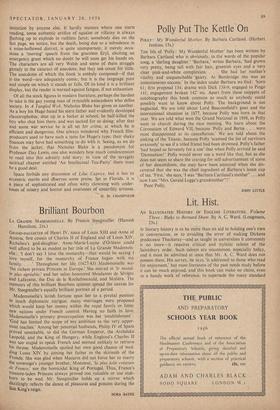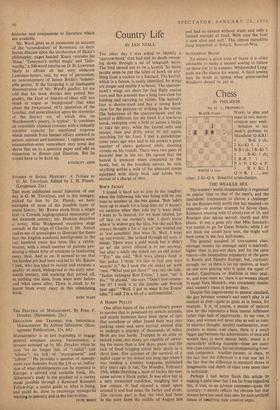Lit. Hist.
IF literary history is to be more than an aid to holding one's Own in conversation, or to avoiding the error of making Dickens predecease Thackeray—and as taught in universities it commonly is no more—it requires critical and stylistic talents of the Saintsbury order. Such talents are uncommon, especially today, and it must be admitted at once that Mr. A. C. Ward does not possess them. His survey, he says, 'is addressed to those who read for enjoyment,' but most literature of the past needs study, before it can be much enjoyed, and this book can make no claim, even as a handy work of reference, to supersede the many standard
histories and companions to literature which are available.
Mr. Ward gives us in succession an account of the 'scoundrelism' of Rousseau, an inco- herent dilation ution the incoherence of Blake's philosophy, pages headed 'Keats restrains his Muse,"Tennyson's verbal magic' and 'Gals- worthy,' a 500-word treatise on D. H. Lawrence likely to affront all but very obdurate Lawrence-haters, and, by way Of peroration, an announcement of James Bridie's 'indubit- able genius.' If the foregoing is an inadequate demonstration of Mr. Ward's quality, let me add that his book divides into potted bio- graphy, the kind of history-of-ideas still too much in vogue as 'background' (but what about the foreground, eh?), quotation of the familiar, and generalisation upon the mysteries of the literary art, of which this, on Wordsworth's poetry, is typical: 'It combines an essentially classical restraint with a uniquely sensitive capacity for emotional response which extends from human affairs outward to nature, sentient and inanimate.' I suppose some examination-setter somewhere may some day shove that on to a question paper and add an injunction to discuss and illustrate. But he would have to be hard ub.
KINGSLEY AMIS



































 Previous page
Previous page